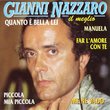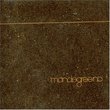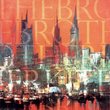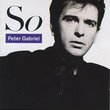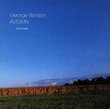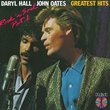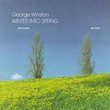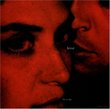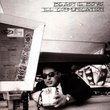| All Artists: Irvine Arditti, Garth Knox, Rohan deSaram, Arditti String Quartet Title: Gy�rgy Ligeti Edition 1: String Quartets and Duets - Arditti String Quartet Members Wishing: 3 Total Copies: 0 Label: Sony Release Date: 1/21/1997 Genre: Classical Style: Chamber Music Number of Discs: 1 SwapaCD Credits: 1 UPC: 074646230626 |
Search - Irvine Arditti, Garth Knox, Rohan deSaram :: Gy�rgy Ligeti Edition 1: String Quartets and Duets - Arditti String Quartet
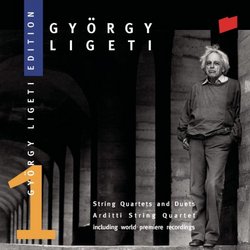 | Irvine Arditti, Garth Knox, Rohan deSaram Gy�rgy Ligeti Edition 1: String Quartets and Duets - Arditti String Quartet Genre: Classical
No Description Available No Track Information Available Media Type: CD Artist: LIGETI,G. Title: QT STR/DUET Street Release Date: 01/28/1997 |
Larger Image |
CD DetailsSynopsis
Product Description No Description Available No Track Information Available Media Type: CD Artist: LIGETI,G. Title: QT STR/DUET Street Release Date: 01/28/1997 Similar CDs
Similarly Requested CDs
|
CD ReviewsString works, includes his must-have glorious Second Quartet Christopher Culver | 12/07/2004 (5 out of 5 stars) "Sony's "Gyorgy Ligeti Edition 1: String Quartets and Duos" is the first disc of the 13-volume series--continued after the 8th installment by Teldec's "The Ligeti Project"---of Gyorgy Ligeti's collected works in performances overseen by the composer itself. It collects his impressive two strings quartets, a brief birthday greeting to another composer, a work inspired by an ethnomusical stint in Romania, and another early work. The works are performed by the Arditti Quartet, who have done so much to provide satisfying and lasting performances of modern string repetoire. String Quartet No. 1 ("Metamorphoses nocturnes") was written between 1953 and 1954, as the composer was struggling to express himself creatively in Stalinist Hungary. The work shows clear inspiration from Bartok's third and fourth quartets, which Ligeti knew only from their score as they had been suppressed. Similarly, Ligeti had no hope his own work would be performed, and it was written essentially "for his desk drawer". Ironically, when Ligeti submitted the piece to a Western competition, it was deemed too traditional for recognition. This first string quartet is a study in the juxtaposition of unlike sections; under a thin verneer of normality, the music is heterogenous. I think this is a fine work, and it is one of the composer's few pre-emigration pieces that do not sound like juvenalia in comparison with his later works. String Quartet No. 2 (1968) was composed long after Ligeti's move to the West and so is entirely avant-garde, linked with the techniques of his other works of the 1960's. Ligeti was quite proud of this piece, claiming it as his favourite of his works of the time, and feeling that he had made a permanent contribution to the string quartet tradition. The work is indeed a part of his micropolyphonic style of the 1960's, but there is a great deal more here. It is a twitching, paranoid, nervous, neurotic piece with a grimy, constantly shifting texture, like the soundtrack to a Kafka story. It really must be heard to be believed, and this second quartet is the high point of this disc. "Hommage a Hilding Rosenburg" for violin and cello (1982) is a short birthday greeting to that Swedish composer. It is the least important work on the disc and is really nothing more than something of a fanfare. "Balada si joc" for two violins (Romanian "Ballad and dance", 1950) is a short string duet inspired by Ligeti's time spent in Romania collecting folk music during his music studies. The result uses no actual folk material, but is an authentic imitation of the music Ligeti encountered both in his boyhood and in his return to Transylvania at this later time. When it was later expanded to use an orchestra, it became the first two movements of his "Concert Romanesc" (found on "The Ligeti Project II"). The string duet, however, manages to create with but two instruments nearly the same moving passion as the later orchestration. The following "Andante and Allegretto" for string quartet (1950) is another early work, again inspired by folk music. It is not as successful as "Balada si joc", indeed even forgettable. While there are other recordings of these works available, such as the recent recordings reissued in Deutsche Grammaphon's "Echo 20/21" series, this performance by the Arditti Quartet can certainly be seen as definitive. It takes a lot of talent to please Ligeti, one of the most demanding composers, especially in a crushingly difficult work like the second string quartet. While I think "Gyorgy Ligeti Edition 3: Piano Works" or "The Ligeti Project IV" are better places to begin on this series of Ligeti's collected works, this set of string works should be one of the first Ligeti works you buy, especially for the String Quartet No. 2." A Great CD of Modern Music Music Expert | East Coast, USA | 10/29/2003 (5 out of 5 stars) "I discovered Ligeti's music not from the film score of "2001: A Space Odyssey" as many of my contemporaries have, but by browsing the 20th Century record bins and coming across his Wergo release of "Lantano" and his "Requiem" (now, of course, on rather expensive import CD). I took a chance. I'm glad I did. Eventually, these two pieces became my favorite two pieces of music regardless of genre. I then came to realize that his was the music used in the movie. I've since amassed a fairly large collection of his music. I've listened to the Deutsche Grammophon analog recording of String Quartet No. 2 for years. With this newer digitally recorded CD, expertly played by the Arditti Quartet, so many things come to light that have been previously obscured. It's difficult to find something to add to the reviews that appear below. It is just that if you are a fan of Ligeti's music, you will surely take pleasure in this CD. My favorite piece on the CD is, of course, String Quartet No. 2, but it might just be its familiarity that makes it more enjoyable. One of the things I like most about Ligeti's music is his originality. He doesn't seem to fit into any genre that I'm familiar with. Yes, I'm sure there are others that are adept at writing microtonal compositions. But his consistency is incredible, and this CD helps prove that." !Bravo Arditti! J. B. Fresno | Madrid, Spain | 04/17/2000 (5 out of 5 stars) "György Ligeti se está convirtiendo en los últimos años en el "principal compositor vivo", tras los fallecimientos de Messiaen y Lutoslawsky. Sin duda, Ligeti cuenta con todos los merecimientos para recibir este honor: amplio catálogo, voz propia, variedad, calidad y "cierta accesibilidad". Los cuartetos que aquí nos ocupan forman parte del núcleo fuerte de su obra. Ya se ha dicho repetidamente la filiación del primero "Metamorfosis Nocturnas" respecto de los últimos cuartetos de Bartók, llegando a afirmarse que podría pasar por el séptimo de éste último. En cuanto al segundo cuarteto es un alarde de inventiva a la par que un completo resumen de las inquietudes del húngaro durante la década de los sesenta, utilizando procedimientos que ya hallamos en muchas de sus obras orquestales de la época. Cada movimiento es un mundo aparte y muestra a las claras que vanguardismo, calidad y capacidad de fascinación no son conceptos excluyentes. ¿Qué decir del Arditti Quartet, única formación que, hasta el momento, se ha atrevido con ambas obras?. Se trata de una interpretación magistral, superior a la que ya ofrecieron en su grabación para el sello Wergo hace ya algunos años. Además este disco incluido en la serie Ligeti Edition incluye algunos piezas menores no grabadas hasta este momento que aumentan su atractivo. Por cierto ¿a qué se debe el parón de esta serie?. En prácticamente dos años solamente ha salido al mercado la nueva versión de la ópera "El gran macabro"."
|

 Track Listings (18) - Disc #1
Track Listings (18) - Disc #1
